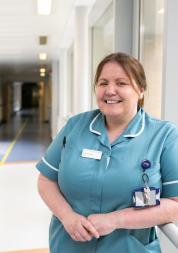Further Developments around Wandsworth Prison Health and Care since we visited

What we did
In 2018 Healthwatch Wandsworth spoke to people at Wandsworth Prison about their healthcare and we also heard from family members and we updated on progress in 2019.
People told us there were positive things around the existence of Healthcare Representatives and Kiosks to request support. They told us things could improve around:
- Waiting times
- Mental health support
- Closer joint working with social care support for identification and provision
- Welcome information and support at the point of entering the Prison
- Availability of information in a range of languages
Since our last update a lot has happened with a pandemic and a change in the organisation providing health care services at the prison. We wanted to hear how health support has been developing as Oxleas NHS Foundation Trust are now the organisation providing the care. The CQC were monitoring and visiting healthcare in 2024 and HM inspections have also visited and reported on the prison so we did not plan a re-visit.
We caught up with Rita Lankai-Lamptey, Interim Head of Healthcare, to hear about what has changed since we investigated local experiences. Find out more about how things have changed or improved.
Key Updates
- We asked about waiting times and were told that there are currently 4slots daily to health care facilities at hospital. There are not a high number of cancellations compared to those within the wider Wandsworth community, but there are sometimes cancellations and rescheduled appointments by the hospital or when there is an emergency. There are some patients who do not wish to attend appointments.
- There is a new healthcare building, which is open for staff, all clinics have been located there with the exception of the dentist.
- There are still healthcare representatives on the wings. The turnover of people in the prison continues to impact on numbers, and the healthcare team would like to have more.
- The forum for people at Wandsworth Prison is still happening where they can chair the meeting and bring issues. Recent examples of issues raised and discussed to be resolved included mental health assessments and delays in appointments. One main issue discussed around requests for mental health support uncovered a solution in asking people to put in more information to get better triage to the services. Another way patient feedback is gathered is via patient surveys after appointments.
- Patients who need support can also get support from the patient library.
- We were told that the Kiosks for requesting support are still available and working and they will be available in the new healthcare building.
- The induction at the point of entry in to the prison takes place and includes information about how to access health and care, this includes leaflets about what is available, including mental health support. We were showed us a leaflet that included signposting and information about what to do in emergencies. When we asked about how communication needs are met, we were told that a lot of forms are translated in to the 10 most commonly used languages. If someone has an identified need they are offered support e.g. to use kiosk etc. this can be provided. We were told that there is a neurodiversity nurse and neurodiversity support worker and recruiting a further staff member to support an average of over 200 people with identified ADHD, Autism and other learning disabilities. There is a safer custody nurse to support and provide a safeguarding role for the most vulnerable patients.
- With regards to mental health support, there is a new operational manager for the mental health team. There are now ‘early days in custody’ planned care and unplanned care teams.
- We also asked about planning for when someone leaves the prison. We were told that housing is a big issue for patients being released from the prison. There is a Liaison and Diversion team that informs the healthcare team when someone is due to leave so that they can work out the status of a patient’s care and needs. Twelve weeks before someone is due for release there is a discharge process to check if the person is registered with a GP and to make sure they have an appointment and to refer them to health and care support in the community. It can be difficult to do this when a person does not have an address.
- Mental health support for someone leaving the prison depends on where they re-locate to, but the health care team contacts the local mental health teams. This can be more difficult when someone doesn’t have a place to live planned. If a psychiatrist is concerned about person due to be released but doesn’t have a home they notify social services to see if they can do something
- With regards to work with social care, the social care team representative continues to attend a local delivery board and meets with the health team each month, this includes and opportunity to provide handovers and updates and to discuss every patient that has been referred to social care to be reviewed with a 10-working day target, including mental health. We were told communication have been very good.
What next
Rita Lankai-Lamptey, Interim Head of Healthcare, has been in post for 6 months, but a new person will follow her in to post by the summer.
We hope to continue to be in touch with developments to healthcare as the new facility opens. Wandsworth Care Alliance (our host charity) also hope to continue to look at improvements to the pathway for people leaving the prison.
See our original report and the response

